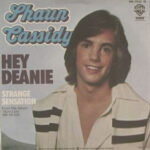The 1950 Academy Awards are often celebrated for recognizing some of cinema’s most enduring masterpieces. Films like Sunset Boulevard, All About Eve, and The Third Man graced the nominations, signaling a golden age for Hollywood. While these cinematic achievements rightfully take center stage, the category of Best Original Song in 1950 offers a fascinating glimpse into the musical landscape of the era. This year presented a diverse collection of nominees, ultimately crowning “Mona Lisa” as the winner, a tune that continues to resonate even today.
“Mona Lisa”: Nat King Cole’s Serenade and an Oscar Triumph
“Mona Lisa,” the winning song of 1950, emerged from the rather obscure war film Captain Carey, U.S.A. Despite the movie’s relative anonymity, the song itself, performed by the incomparable Nat King Cole, transcended its cinematic origins to become a classic. Cole’s velvety voice, combined with lush orchestrations, transformed “Mona Lisa” into an utterly captivating piece. Even for dedicated Nat King Cole enthusiasts who might not immediately list “Mona Lisa” among their top favorites, revisiting it within the context of the 1950 Oscars reveals its undeniable charm and sophisticated allure.
“Bibbidi-Bobbidi-Boo”: Disney Magic and Catchy Charm
Another standout nominee from 1950 was “Bibbidi-Bobbidi-Boo,” the whimsical and instantly memorable tune from Disney’s Cinderella. Verna Felton’s spirited delivery perfectly embodies the song’s playful and magical nature. Indeed, “Bibbidi-Bobbidi-Boo” possesses an infectious quality, easily getting stuck in your head with its sheer catchiness. While Cinderella boasted other arguably more musically profound songs like “A Dream Is a Wish Your Heart Makes” and “The Work Song,” “Bibbidi-Bobbidi-Boo”‘s nomination and enduring popularity are understandable. Though brief, clocking in at under 90 seconds, its iconic status is undeniable, and an Oscar win for this delightful ditty would hardly have been controversial.
The Supporting Nominees: Exploring the Rest of the 1950 Song Landscape
The remaining three nominees in the 1950 Best Original Song category present a less exhilarating picture, though they offer a snapshot of the broader musical trends of the time. “Be My Love,” from The Toast of New Orleans, showcased the vocal talents of Kathryn Grayson and Mario Lanza. However, the song itself, while beautifully performed, feels somewhat formulaic, typical of musical duets from that era. “Wilhelmina,” performed by Betty Grable, evokes a feeling reminiscent of a 1950s television commercial jingle, lacking the depth and memorability of the category’s frontrunners. Finally, “Mule Train,” with its distinctive “clippetty-clop” chorus, possesses a certain folksy appeal. Yet, in comparison to the sophistication of “Mona Lisa” or the sheer fun of “Bibbidi-Bobbidi-Boo,” “Mule Train” simply doesn’t reach the same artistic heights.
Ranking the Oscar Winners: “Mona Lisa” in Context
To place “Mona Lisa” within the broader pantheon of Oscar-winning songs, consider this ranking of winners up to 1950, as previously assessed:
- “Over the Rainbow,” The Wizard of Oz (1939)
- “The Way You Look Tonight,” Swing Time (1936)
- “Mona Lisa,” Captain Carey, U.S.A. (1950)
- “You’ll Never Know,” Hello, Frisco, Hello (1943)
- “On the Atchison, Topeka and the Santa Fe,” The Harvey Girls (1946)
- “Baby, It’s Cold Outside,” Neptune’s Daughter (1949)
- “White Christmas,” Holiday Inn (1942)
- “When You Wish Upon a Star,” Pinocchio (1940)
- “Thanks for the Memory,” The Big Broadcast of 1938 (1938)
- “Lullaby of Broadway,” Gold Diggers of 1935 (1935)
- “Zip-a-Dee-Doo-Dah,” Song of the South (1947)
- “It Might As Well Be Spring,” State Fair (1945)
- “The Last Time I Saw Paris,” Lady Be Good (1941)
- “Swinging on a Star,” Going My Way (1944)
- “Sweet Leilani,” Waikiki Wedding (1937)
- “The Continental,” The Gay Divorcee (1934)
- “Buttons and Bows,” The Paleface (1948)
This ranking underscores the esteemed position of “Mona Lisa” among Oscar-winning songs, solidifying its place as a truly memorable tune from 1950 and beyond. The 1950 Best Original Song category, while somewhat uneven, ultimately celebrated a song that has stood the test of time, showcasing the enduring power of music in film.


